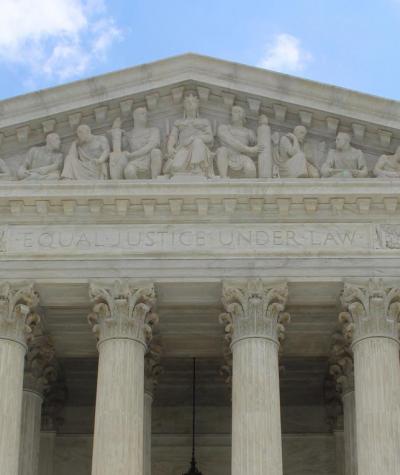On Monday, the U.S. Supreme Court will hear oral argument in two cases that raise a question that the court has struggled with for decades: to what extent can legislatures consider race when drawing congressional districts, particularly when race is used as a proxy for political ends?
The Campaign Legal Center has submitted friend-of-the-court briefs in both cases, Bethune-Hill v. Virginia State Board of Elections, and Harris v McCrory, arguing in each case that legislators cannot set racial quotas to pack black voters into districts or otherwise use race as a proxy to achieve partisan goals when they undergo the redistricting process.
Bethune-Hill arrived at the Supreme Court after a three-judge federal district court held that the Virginia legislature’s plain use of racial quotas in drawing state legislative districts did not violate the 14th Amendment’s ban on racial gerrymandering simply because the districts could, after the fact, be explained by other factors as well. But the three-judge court’s ruling is at odds with the Supreme Court’s 2015 decision in Alabama Legislative Black Caucus v Alabama, which held that rigid and mechanical racial targets for state legislative districts provide strong evidence of an unconstitutional racial gerrymander.
Harris v McCrory has come to the Supreme Court in the opposite posture. The appeal follows a three-judge federal district court decision that agreed that rigid racial quotas, used to unnecessarily pack black voters into districts, and the use of race to achieve partisan goals constituted racial gerrymandering in violation of the Constitution.
Beyond the details in each case, the issue the Supreme Court is grappling with is how legislators may consider race when they are drawing district plans. While the Voting Rights Act (VRA) requires that people of color be given an equal opportunity to elect their candidates of choice, legislators do not always consider race for this allowed purpose. In Virginia and North Carolina, legislators sought to use the VRA (and its protection of majority-minority districts) as an excuse to pack black voters into districts at levels much higher than necessary to empower them to elect their preferred candidates. This was done not only to diminish the power of black voters, but also to achieve partisan gains throughout the state.
This unnecessary packing of black voters to meet racial quotas for partisan gains is precisely what plaintiffs alleged in both Virginia and North Carolina. It speaks volumes that neither the North Carolina nor the Virginia legislatures did any quantitative assessment or functional analysis of how districts should be configured in order for the black community to elect their preferred candidates of choice. That is what should have been done to comply with the VRA, rather than drawing districts with a fixed racial percentage, because the VRA has never required jurisdictions to create or maintain any particular numerical minority percentage.
If legislators want to understand how to ensure that people of color will be able to elect their candidates of choice, they would do well to ask members of those communities whether the districts the legislators have drawn are acceptable to the communities they are ostensibly aiming to protect.
Instead of engaging with community members, and trying to draw districts that are responsive to community concerns, legislators in both Virginia and North Carolina drew districts that would advantage one political party, at the expense of the other party, and, in particular, at the expense of the voting power of African Americans.
Legislators have a great deal of freedom in designing district maps but they cannot purposefully target and diminish the political power of minority voters for political gain. The Supreme Court should not sanction state legislatures’ explicit use of race to achieve partisan gain. Such a decision would ratify the states’ disingenuous use of the VRA, a key tool for protecting minority voting power, as a shield for their purposeful dilution of black voting power across the state.
The Supreme Court should not sanction state legislatures’ explicit use of race to achieve partisan benefit. Such a decision would ratify the states’ disingenuous use of the Voting Rights Act, a key tool for protecting minority voting power, as a shield for their purposeful dilution of black voting power across the state.
The Campaign Legal Center has filed friend-of-the-court briefs in all the redistricting cases before the Supreme Court in the 2016 and 2017 terms, and is currently litigating a number of partisan gerrymandering cases that may well get to the Supreme Court in 2017.
